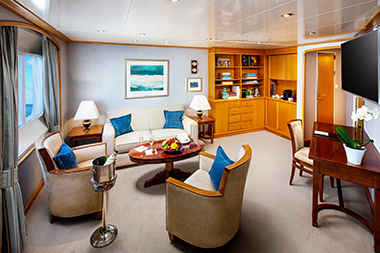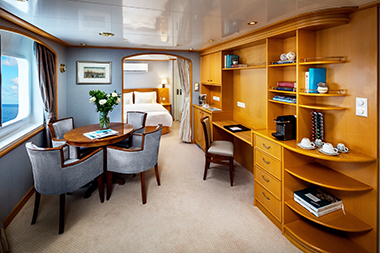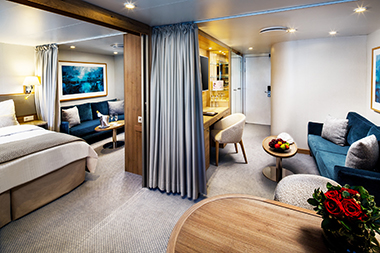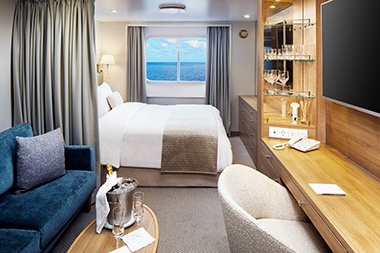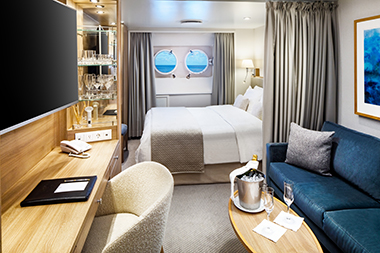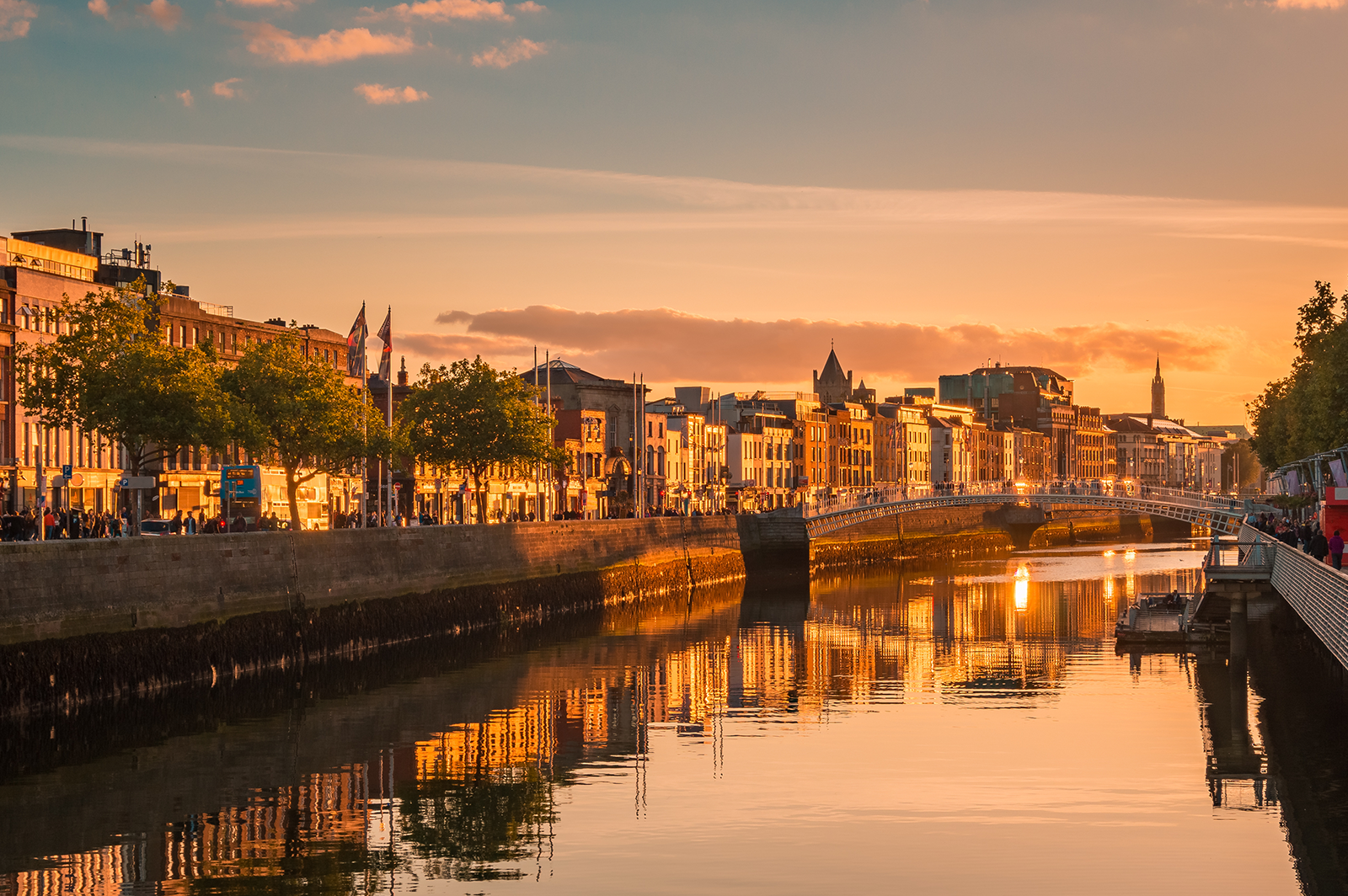
Dublin, the capital of the Republic of Ireland, sits on Ireland’s east coast at the mouth of the Liffey River. The Vikings settled in Dublin from the 841 AD onward, and existing remnants of Viking history infuse the city. During their reign Dublin became the most important town in Ireland as well as a center for western Viking expansion and trade. As the second city of the British Empire in the 18th century, Dublin entered its architectural golden age and is famous for the Georgian architecture of this period. Historic buildings include the thirteenth-century Dublin Castle and imposing St Patrick’s Cathedral, founded in 1191. City parks include landscaped St. Stephen’s Green and strollable Phoenix Park. The National Museum of Ireland explores Irish heritage and culture. You’ll find just as much allure in Dublin’s parks and expansive green spaces as you will in the city’s lively quarters—from cycling through the quiet glens of Phoenix Park to meandering amid orchids inside the glasshouses at the National Botanic Gardens.
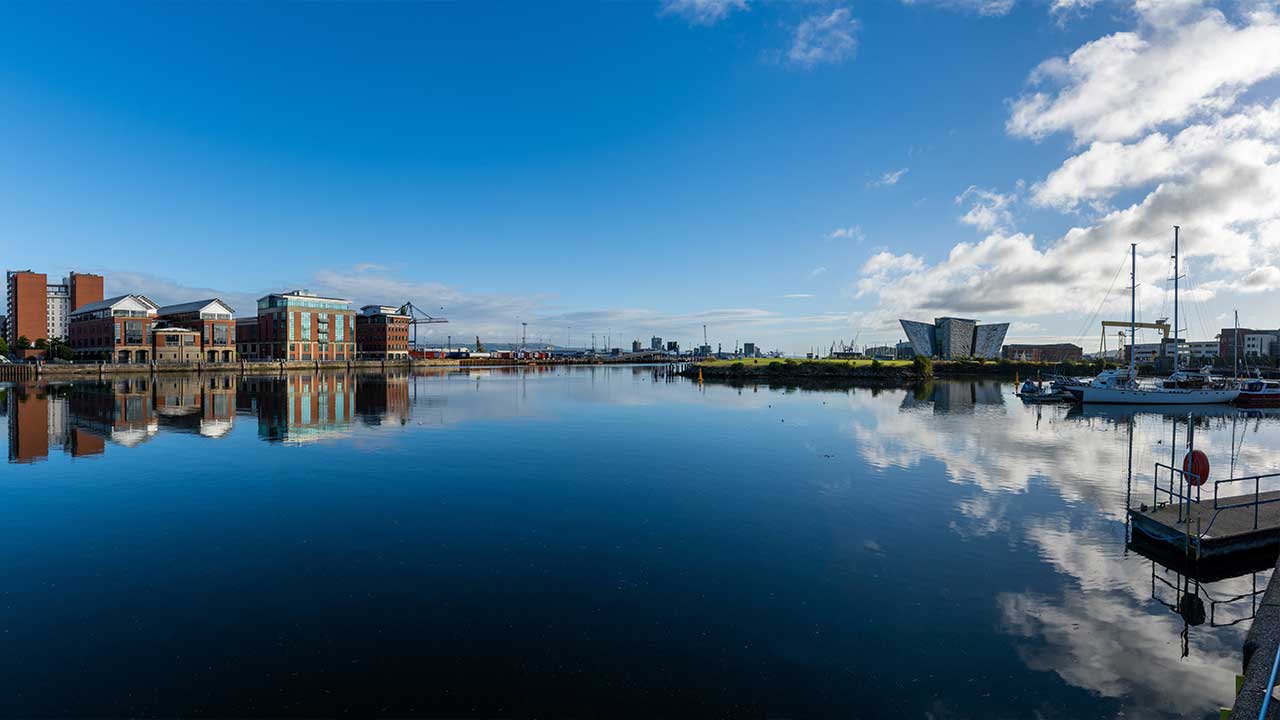
Northern Ireland’s thriving capital of Belfast offers historic landmarks and museums, including the Ulster Museum, the aluminum-clad Titanic Belfast, and the Metropolitan Arts Center (The MAC), located in Belfast’s Cathedral Quarter. Among shipbuilding and the production of rope and tobacco, the city paved the way in the world’s linen industry, and many of its linen houses still remain in the city’s historic Linen Quarter. Stroll the Botanic Gardens, designed in the 19th century by Sir Charles Lanyon. Named for the five caves along the Belfast cliffs, Cave Hill Country Park offers walking trails with incredible views dotted with ancient history, including the nineteenth-century Belfast Castle and the old stone McArt’s Fort, sitting 1,200 feet above sea level. Take in the city’s lively food scene, including St. George’s Market boasting local delicacies. As your gateway to Northern Ireland, Belfast is perfectly positioned for exploration of Giant’s Causeway, Game of Thrones filming locations, and bicycling beyond Belfast.
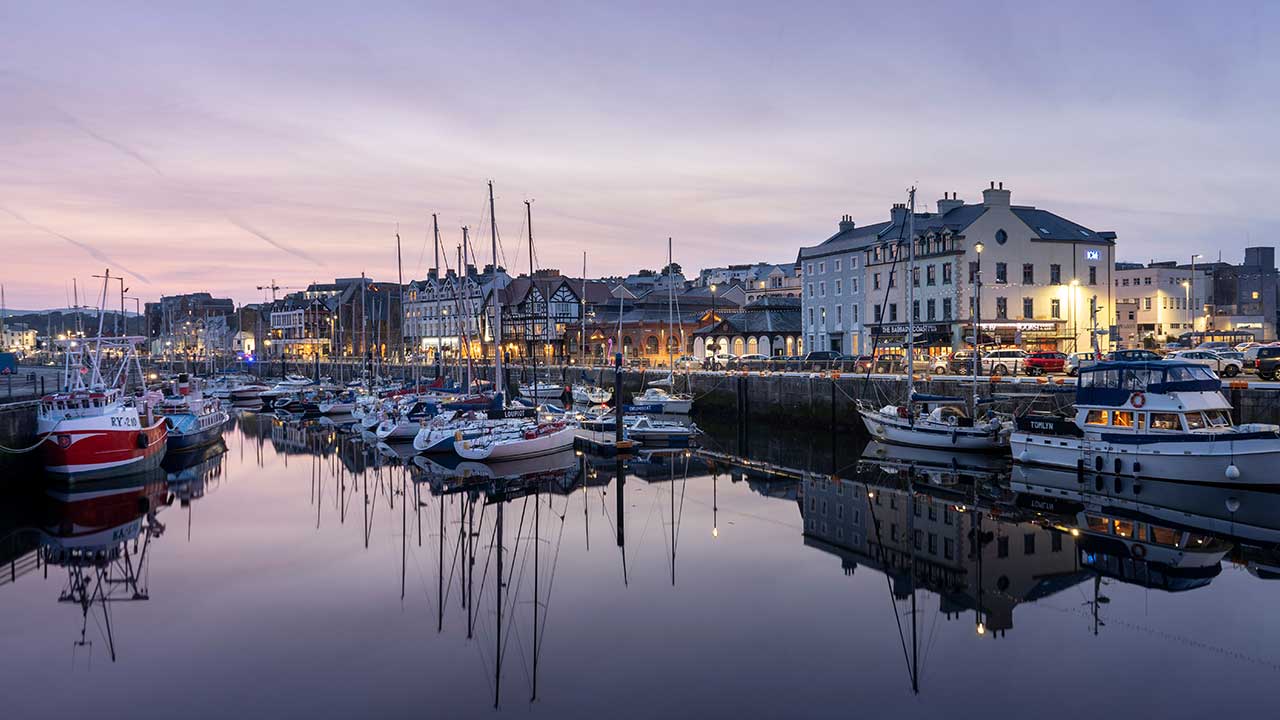
The islands of Great Britain, Ireland, the Isle of Man, the Inner and Outer Hebrides, the Northern Isles of Orkney and Shetland—and thousands of smaller islands—collectively comprise the dreamy British Isles. Rugged cliffs, sandy beaches, and intimate yachting harbors and ports allow a view of island life you haven’t experienced unless you have approached these destinations by yacht. Yachting through the remote Isles of Scilly and castle-dotted, rural Isle of Man transport you to otherworldly locations.
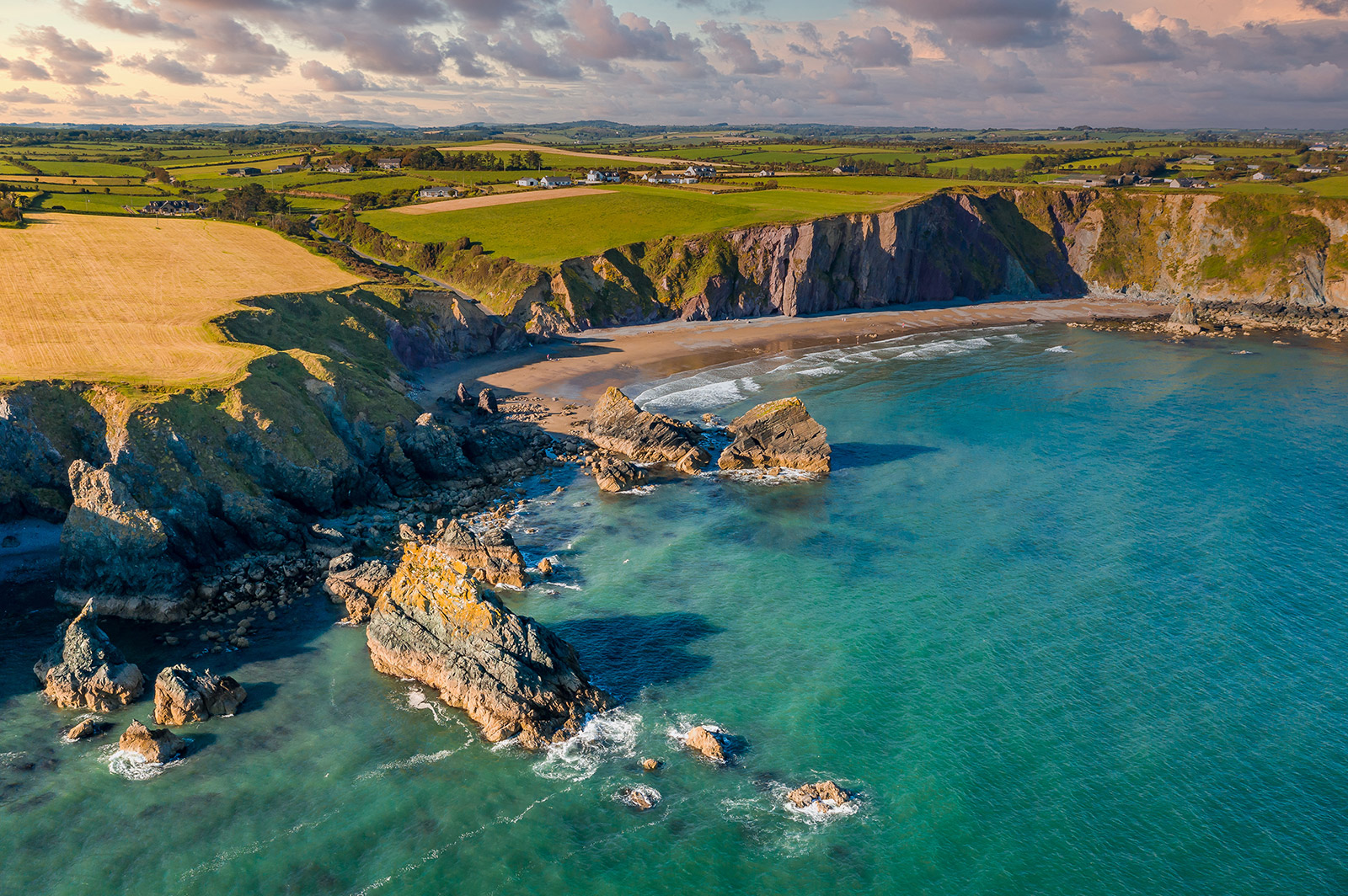
Ireland’s oldest city enjoys a rich history that includes Viking settlement, the Norman invasion, and periods of economic boom, seen in the Waterford Crystal Factory and its once-heralded title as the Wine Capital of Ireland. A walk through Waterford reveals vestiges of its rich past. The Vikings established Waterford in the late nineteenth century as a walled city, making it their most important stronghold in Ireland after Dublin. In 1169, Waterford was one of the first cities to be conquered by the Normans, and in 1205, King John granted Waterford its first charter, which helped the city develop as a major seaport. The Viking Triangle, a historic area with 1,000-year-old Viking Walls, includes Reginald’s Tower, Ireland’s oldest civic building, the Medieval Museum, and the Bishop’s Palace Museum. Other significant buildings include the remains of Blackfriars Abbey, a Dominican friary established in 1235. Cycling and hiking opportunities are found along Waterford Greenway, beautiful cycling and walking trail along an old railway line, and the Vee Scenic Drive, offering panoramic views of the Knockmealdown Mountains and valleys.
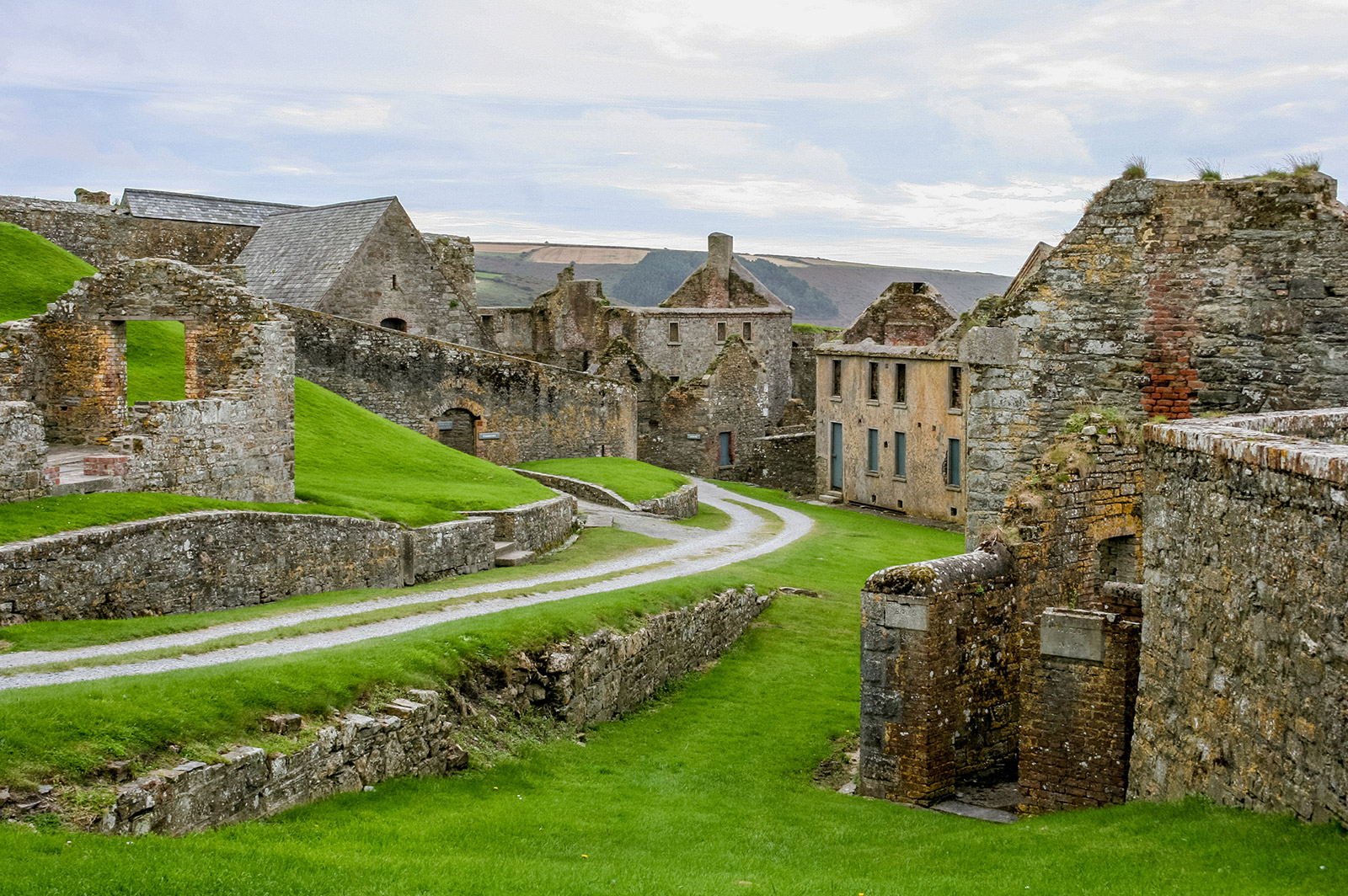
Sitting pretty in Kinsale Harbor at the mouth of the Bandon River, just south of Cork, Kinsale enjoys a rich history as a medieval fishing village and important naval port for over 500 years, known for its Battle of Kinsale. The colorful seaside village is strollable, providing easy access to historic sites, museums, and outdoor activities. Kinsale has a celebrated food culture, found in its restaurants, including the Michelin-starred Bastion, and annual gourmet food festivals. Notable buildings include Desmond Castle, built by the ninth Earl of Desmond circa 1500, which has taken on many roles over time, including functioning as a prison, ordnance store, workhouse, and, most recently, the International Museum of Wine. Charles Fort, a seventeenth-century star-shaped fort and Irish National Monument, offers panoramic views and self-guided walks. James Fort, on the river’s opposite bank, boasts grassy headlands and views of the harbor and Kinsale town. Beyond castles, golf lovers can tee off at the world-renowned Old Head Golf Links, sitting on a 220-acre headland jutting into the Atlantic, offering dramatic views and a challenging course.
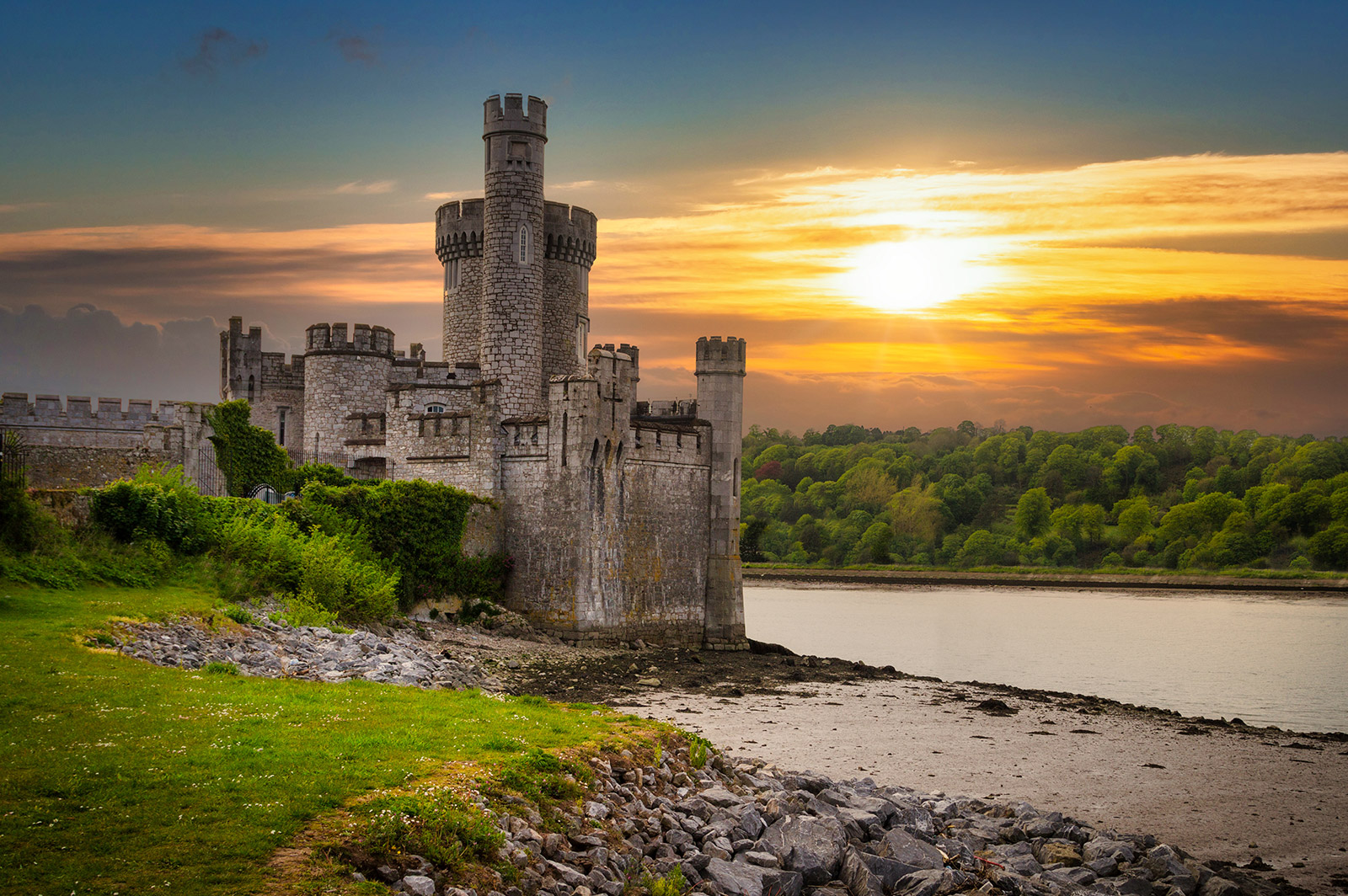
Sitting pretty in southwest Ireland in Cork Harbor, one of the world’s largest natural harbors, Cork enjoys a rich maritime heritage. Founded in the sixth century as a monastic settlement, Cork was expanded by the Vikings and granted a charter in 1185 by Prince John. Also called "the Rebel City" for its support of the Yorkist cause during the Wars of the Roses, there is much to see and do both in and around the city. Cork is recognized for its St. Fin Barre’s Cathedral, a nineteenth-century Gothic-style cathedral with stained-glass windows, stone carvings, and tower that offers panoramic views of the city. The English Market, selling its wares since 1788, is one of the oldest and most historically rich covered markets in Europe, offering both local and international delicacies. Cork is your gateway abundant castles, most notably the Blarney Castle, home to the infamous Blarney Stone and the Rock of Cashel, also known as “High Kings of Tipperary” as it was the historical seat where the High Kings of that region were crowned and held court. The High Kings of Tipperary boasts thousand-year-old structures, including a round tower, Romanesque chapel, and Gothic cathedral. Whiskey lovers can also visit the Jameson Midelton Distillery and Museum in nearby Midleton, set on over 15 acres, to see the world’s largest pot still and experience premium whiskey tasting.
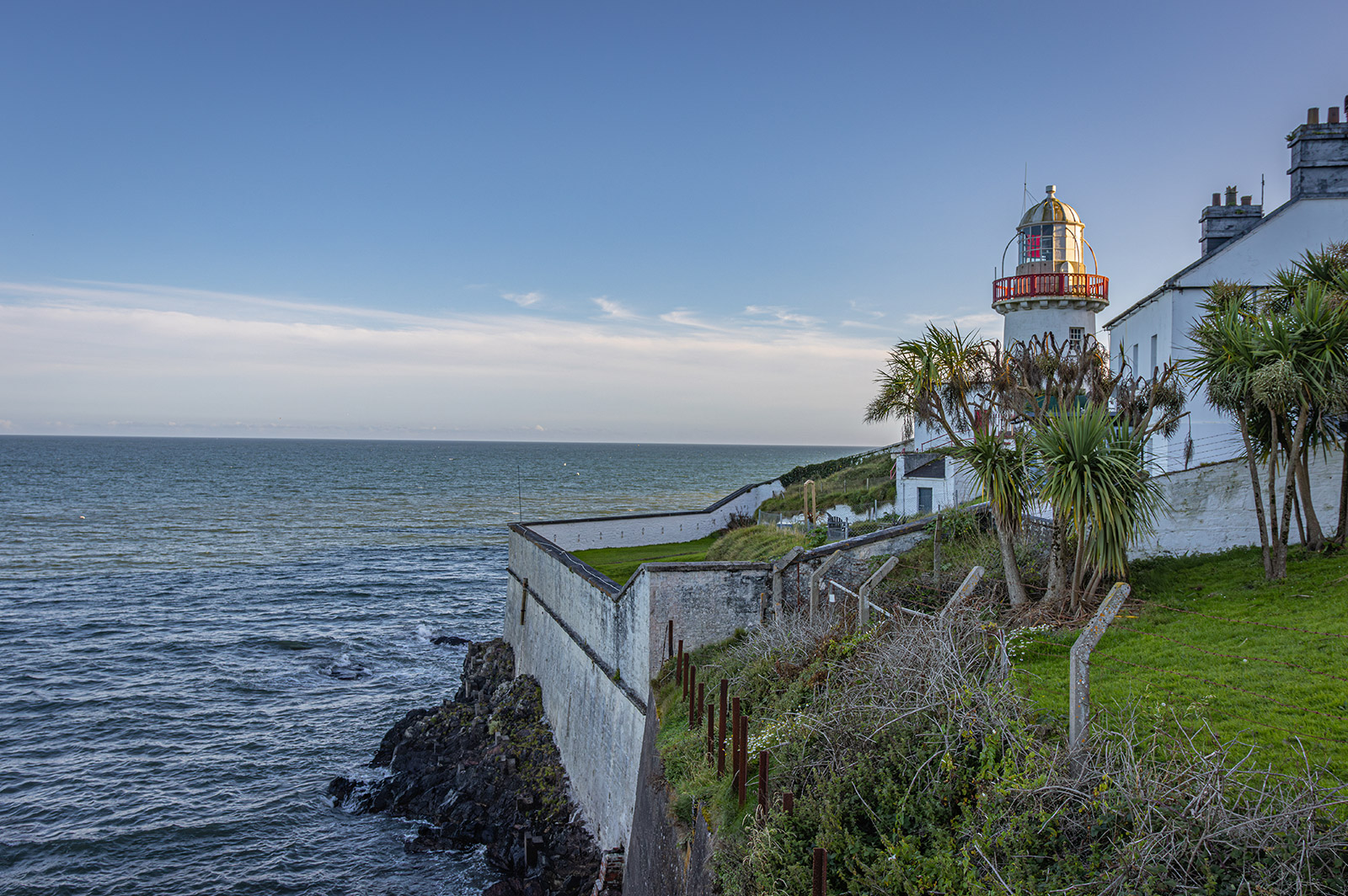
The Irish coastal town of Youghal is rich in history and natural beauty. A walk through this medieval once-walled city reveals parts of the original water gate, medieval walls, and clock tower. Very much strollable, notable sites can be spied throughout, such as St. Mary’s Church, built in 1250, housing the tomb of Richard Boyle, the first earl of Cork, and Myrtle Grove, home of the Elizabethan adventurer and major of the town, Sir Walter Raleigh. During the nineteenth century, Youghal was an important site for pottery works and lace making; these and other artisan crafts are proudly on display in local shops. Youghal is also your gateway to Lismore Castle Gardens, arranged over seven acres within the seventeeth-century outer defensive walls of Lismore Castle. The gardens are said to be the oldest continually cultivated gardens in Ireland and offer breathtaking views of the surrounding countryside and Blackwater Valley. Explore the countryside by foot or bike; relax on one of Youghal’s several Blue Flag beaches, or go birdwatching at Ballyvergan Marsh, the largest freshwater coastal marsh in County Cork.
Suites & Staterooms
Owner's Suite
From: $ 23,389*
Commodore Suite Deck 2
From: $ 18,489*
Yacht Club Stateroom Deck 4
From: $ 10,289*
Yacht Club Stateroom Deck 2
From: $ 9,489*
*Single Supplement for this voyage is 200% for Yacht Club Deck 2, 3 and 4. For Commodore, Admiral and Owners Suite, a 200% single supplement rate applies.
Government, Port, Document Issuance, Handling & Service fees: $490 per guest (included)
Please Note: Fares are capacity controlled and may change without notice. The fares are per person based on double occupancy. Single and third person rates are also available. SeaDream Yacht Club strongly recommends that all guests purchase travel insurance.
Yachting Land Adventures & Activities
Please check back soon for updates.
Testimonials
This was our 3rd voyage with SeaDream – and we think the best one. We'll be back. Mr & Mrs StenstadvoldNorway
The best vacation we have ever been on. The combination of relaxed atmosphere and impeccable service was perfect. Mr & Mrs PedersonConnecticut

